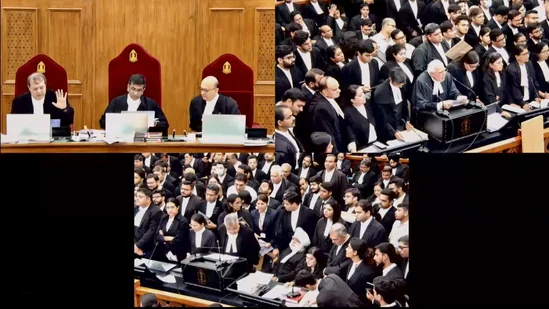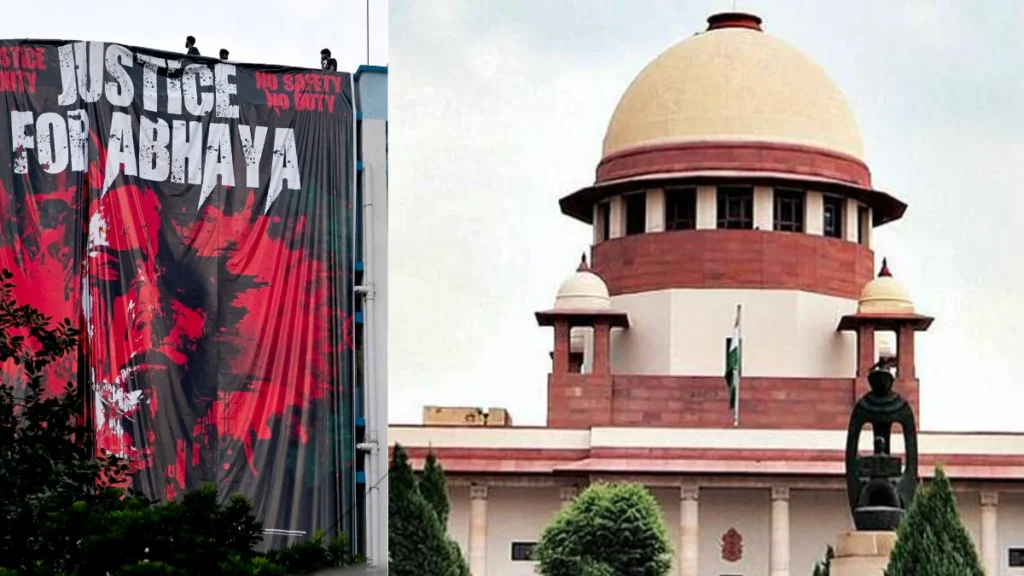Supreme Court’s Stance on Kolkata Doctor’s Rape-Murder Case
The tragic case of a young female doctor who was raped and murdered at RG Kar Medical College and Hospital in Kolkata has stirred nationwide outrage. The Supreme Court of India has now weighed in on this horrifying incident, revealing serious concerns about the handling of the case by the local police. Here’s a detailed breakdown of what transpired and what it means moving forward.
1. Supreme Court’s Shock Over Police Delay
The Supreme Court, led by Chief Justice DY Chandrachud and Justices JB Pardiwala and Manoj Misra, has expressed grave concern over the Kolkata Police’s handling of the rape-murder case. The Court described the police’s actions as “extremely disturbing,” highlighting the shocking delays in registering the victim’s death. Specifically, Justice Pardiwala noted that the procedural irregularities observed were unprecedented in his 30 years of legal experience.
2. Procedural Irregularities Highlighted
A major point of contention was the timing of the post-mortem and the registration of the case. The post-mortem of the victim was conducted between 6:10 PM and 7:10 PM on August 9, yet the report of her unnatural death was only filed at Tala police station at 11:30 PM on the same day. This delay has prompted questions about the efficiency and integrity of the police investigation.
3. Supreme Court’s Assurance to Doctors
In response to ongoing protests by doctors demanding justice for their colleague,
the Supreme Court has assured them that no punitive measures would be taken against them if they resumed their duties.
Chief Justice Chandrachud emphasized the importance of doctors in maintaining public health services and urged them to return to work. The Court expressed a commitment to address their grievances once they rejoin their duties.
4. CBI Takes Over the Investigation
The initial investigation by the Kolkata Police faced criticism for its handling of the case.
On August 13, the Calcutta High Court transferred the probe to the Central Bureau of Investigation (CBI),
which began its inquiry on August 14. The Supreme Court has directed the Kolkata Police officer responsible for the initial entry to appear in court and clarify the timing of the entry.
5. Supreme Court’s Concern Over Working Conditions
The Supreme Court has also voiced concerns about the working conditions of resident doctors in India. Chief Justice Chandrachud highlighted the inhumane nature of 36 to 48-hour shifts and called for a review of working hours to improve the overall well-being of medical professionals. The Court stress the need for a balance approach to ensure that doctors are not overburden while maintaining effective healthcare services.
Conclusion
The Supreme Court’s intervention in the Kolkata doctor’s rape-murder case underscores the importance of a swift and transparent investigation.
The Court’s observations and directives aim to rectify procedural lapses and ensure justice for the victim.
The case has also brought to light the critical issue of working conditions for doctors, prompting calls for reform to safeguard both medical professionals and the public they serve.
As the investigation continues under the CBI,
it remains crucial to address the concerns raised and work towards a resolution that honors the memory of the victim and improves the systemic issues within the healthcare system.










